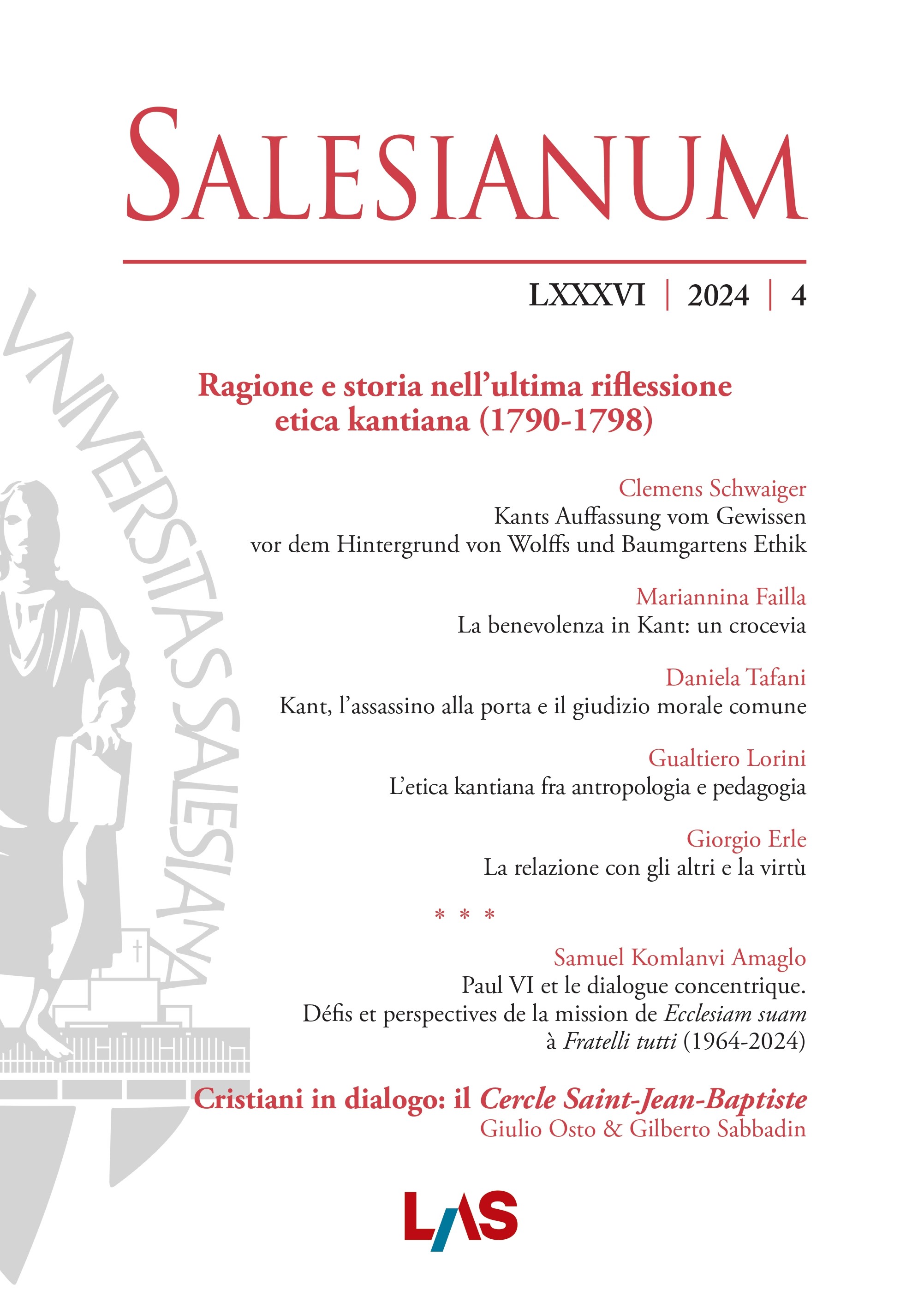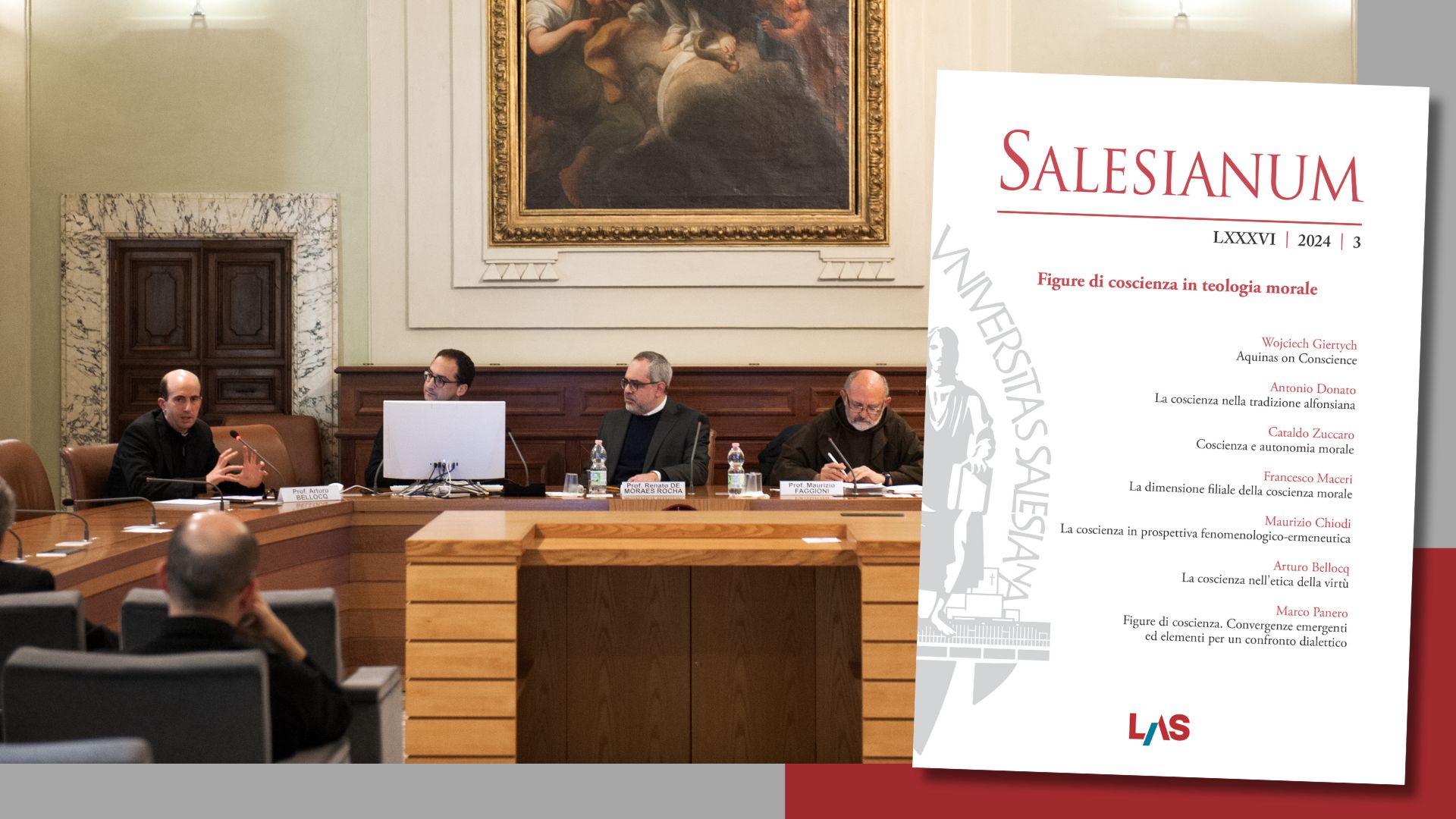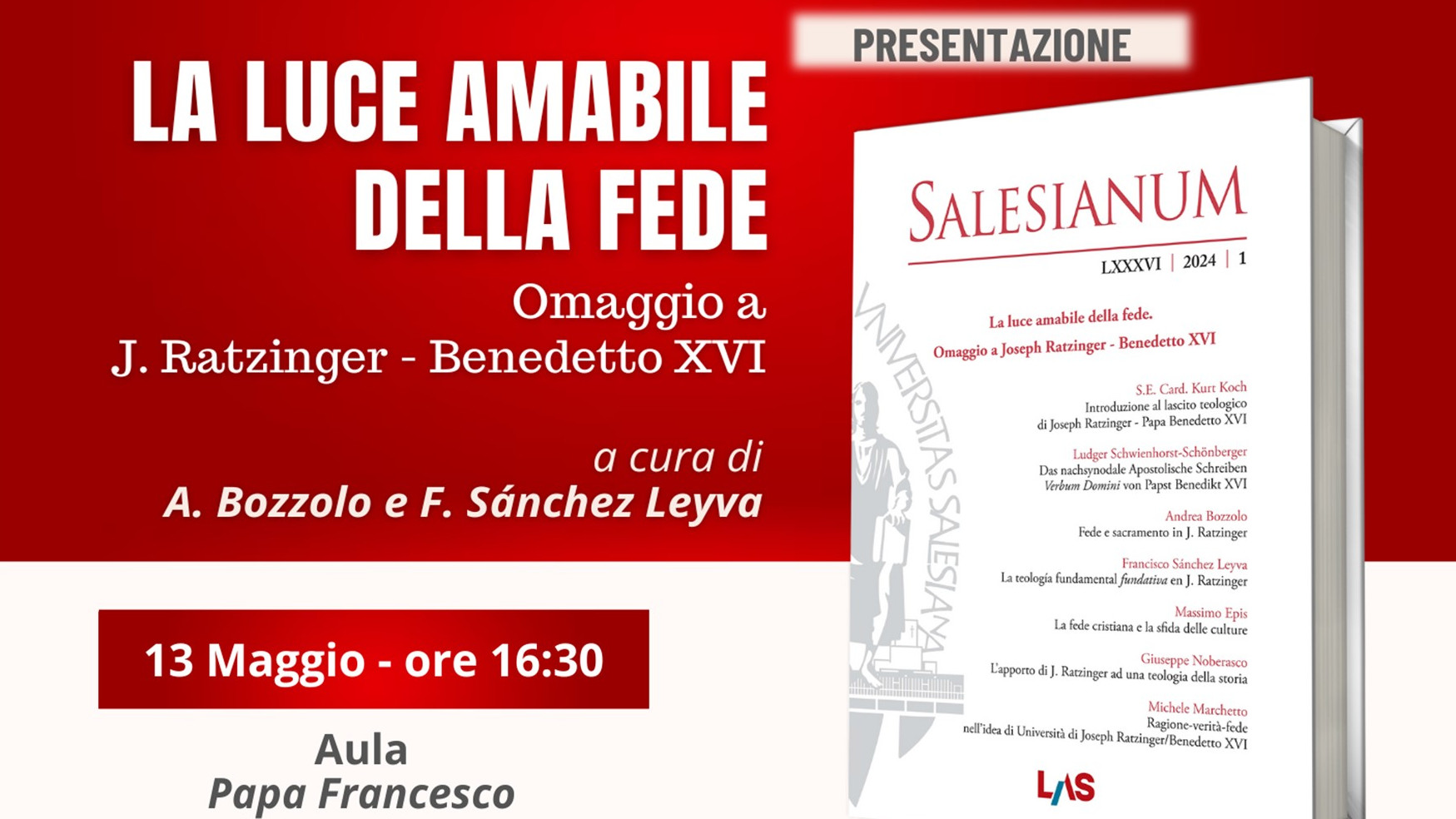«Primum quod tunc homini cogitandum occurrit, est deliberare de seipso» (STh I-II, 89,6). Il ruolo del fine ultimo nel sorgere e nell'organizzazione della vita morale
Salesianum vol. 83 (2021) n. 1, 26-55
Sezione: Studia
Sommario
A partire da una questione tipicamente scolastica e apparentemente di scarso interesse – se il peccato veniale possa sussistere in una persona che ha soltanto quello originale – il testo di STh I-II, 89,6 traccia una mappa orientativa per la vita morale del fanciullo che giunge all’età della discrezione. Lo studio ripercorre in dettaglio l’insegnamento di I-II, 89,6 e ne incalza le problematiche soggiacenti, misurandosi con i più autorevoli commenti della tradizione tomista, per indagare come il riconoscimento obbediente di un ordine morale (finis debitus) appelli di fatto ad una comprensione inclusiva dell’esistenza umana (finis ultimus), in cui l’attitudine manifestata dal soggetto verso il bene morale veicola implicitamente quella nei confronti di Dio stesso. Tuttavia, la maturazione propriamente religiosa del soggetto morale esige pur sempre una certa conoscenza esplicita di Dio, a lui nota per via di fede naturale.
Abstract
Starting from a question typically scholastic and apparently of little interest – whether venial sin can exist in a person who has only the original one – the text of STh I-II, 89,6 draws an orientation chart for the moral life of the child who reaches the age of discretion. The study traces in detail the teaching of I-II, 89,6 and pursues its underlying problems, assessing itself with the most authoritative comments of the Thomistic tradition, to investigate how the obedient recognition of a moral order (finis debitus) actually calls for an inclusive understanding of human existence (finis ultimus), in which the attitude manifested by the subject towards moral good implicitly conveys the same towards God himself. However, the properly religious maturation of the moral subject still requires a certain explicit knowledge of God, known to him by way of natural faith.


